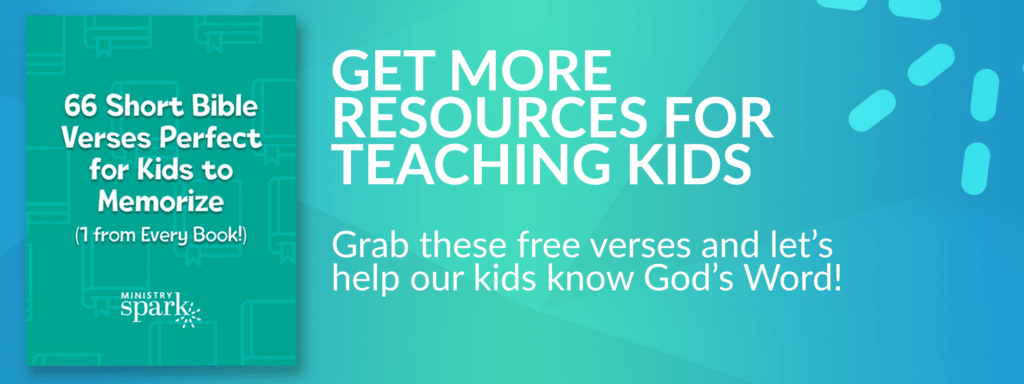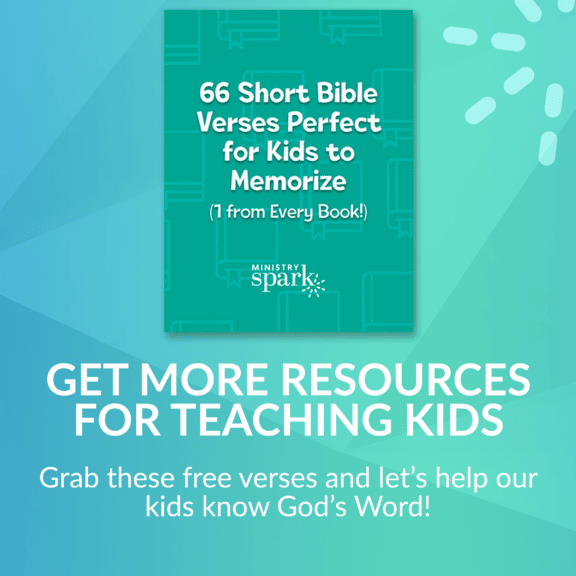Daniel and Jonah (of lion’s den and big fish fame, respectively) show up in children’s Bible lessons early on. But what can kids learn from the other Old Testament prophets? What can kids learn from prophets like Jeremiah, Hosea, and Malachi?
What they can learn is a lot about the nature and character of God. For this reason, we don’t want to overlook teaching kids about the Old Testament prophets.
What Is a Prophet?
In the Old Testament, prophets were specially called by God to deliver new revelation to a specific group of people.
First, kids need to know what a prophet is. In the Old Testament, prophets were specially called by God to deliver new revelation to a specific group of people.
Of course, anyone could say they had a message from God, so He gave His people a standard by which they could measure the truthfulness of those who claimed to speak in His name:
“If what a prophet proclaims in the name of the Lord does not take place or come true, that is a message the Lord has not spoken. That prophet has spoken presumptuously, so do not be alarmed.” Deuteronomy 18:22
So, the key to testing a prophet’s message was if it came true or not. Sometimes messages were proven true immediately, and sometimes—like with the prophecies regarding the Messiah—it took centuries.
Why Did God Send Prophets?
So why did God send these prophets? Because He really wanted to communicate to His people!
They were caught up in horrible sin. They had chased after false gods and worshiped idols. His people had ignored Him. He had told them how to live righteously, and they chose to live wickedly. The consequences of their disobedience were coming, and so He tried to warn them repeatedly to turn back to Him. He did this through the prophets.
Pattern and Purpose
Next, kids can learn that prophets’ messages all followed a similar pattern and served a similar purpose. The messages usually contained these five basic parts:
- A warning about the coming judgment because of the nation’s sinfulness
- A description of the sin
- A description of the coming judgment
- A call for repentance
- A promise of future deliverance and salvation
These are big words that kids will need help understanding. But the ideas are familiar if you bring it down to the level of their experience.


For Example…
You can share an example like this: A mother sees her little girl playing with matches. The mom knows the match could strike and bad things could happen. She tells her to stop so she doesn’t get hurt. The child throws a big fit: “No! My matches! You can’t take them!” This is silly, right?
Of course, the mom can take them. She’s bigger and stronger. But she doesn’t, because she wants the child to learn and make a good choice.
She gives a warning: “Honey, put the matches down. They are dangerous and can hurt you.” (The mom is warning about the coming consequence. In the Bible it’s called a judgment.) The mom says, “You’re not allowed to play with matches; they’re dangerous. And you’re disobeying me by not putting them down.” (A description of the sin.)
She continues, “If you don’t put down those matches, you will start a fire, and you will get hurt. Our whole house could be destroyed.” (That’s a description of the consequence or the coming judgment.)
Then the mom, who loves her child, gives her one more chance to do the right thing: “I don’t want you to get hurt, and I don’t want to have to yank them from your hand. I want you to choose to put them down because you love me.” (That’s the call for repentance.)
The mom says, “Honey, I have something so much better for you. You can’t imagine the hugs and kisses and treats that are waiting for you as soon as you put down those matches. I love you and want to shower blessings on you. But you must do what I say.” (The promise of future deliverance and salvation.)

Conveying the Idea
This is not a perfect analogy, but it conveys the idea of the prophets’ messages. The “mom” in this story represents God, the child is the Israelites, and the matches are the false gods they’re messing around with.
In the case of Israel, the consequence or judgment was not that they would get burned by fire, but that they would be conquered by other nations and hauled off as slaves.
The promise for the future was not hugs and kisses and treats, but that God would restore His people—bring them back together, rebuild Jerusalem, and live in close fellowship with them once again. That is the message of both the major and minor prophets.
The Character of God
God’s greatest desire is to have a loving relationship with us.
The books of the Old Testament prophets teach us about the character of God. He is totally opposed to sin. Sin is bad for us, and He wants what is best for us.
When we sin, God often lets us feel the consequences, but He is always faithful to His people. God’s greatest desire is to have a loving relationship with us. He will warn us again and again. He gives second and third and fourth chances—over and over.
God the Father wanted a relationship with us so much, that even way back in the Old Testament, He had a plan. He would send His Son Jesus to save us from sin and reconcile us to God. The prophets teach us that this was God’s plan all along:
“He was despised and rejected by mankind, a man of suffering, and familiar with pain. … Surely he took up our pain and bore our suffering … But he was pierced for our transgressions, he was crushed for our iniquities; the punishment that brought us peace was on him, and by his wounds we are healed.” Isaiah 53:3-5
This prophecy was fulfilled seven centuries later. Jesus did come, and He bore the punishment that brought us peace and salvation.
The character of God and the foreshadowing of the gospel are all over the 17 books of the prophets in the Old Testament. This is what we want kids to know as they learn and develop their faith!










